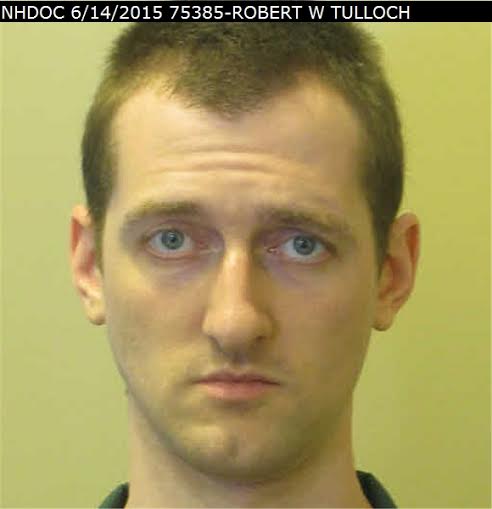By DAMIEN FISHER, InDepthNH.org
The New Hampshire Supreme Court is declining to take up the question of Robert Tulloch’s life sentence without the possibility of parole.
Tulloch is behind bars for his role in the 2001 double-murder of Dartmouth professors Half Zantop, 62, and Susanne Zantop, 55. Tulloch was 17 when he and his high school friend, James Parker, then 16, killed the couple in their Etna home after picking them at random.
Tulloch is seeking a new sentence in the case, arguing that life sentences without the possibility of parole for minors are unconstitutional. Grafton Superior Court Judge Leonard MacLeod referred the life sentence question to the Supreme Court in February, seeking a ruling on the constitutional question before he holds a resentencing hearing for Tulloch.
But the Supreme Court declined the referral this month. The unanimous declination came without any written ruling and sends the matter back to MacLeod to sort out. New Hampshire’s Supreme Court has not yet made any rulings about life without parole sentences for minors, leaving little in the way of legal precedence for MacLeod to use in his considerations.
In his February order sending the matter to the higher court, MacLeod wrote that the legal and constitutional issues involved in Tulloch’s resentencing require the Supreme Court to weigh in.
“Given the stakes of the legal questions presented — for the court, for the judiciary’s reputation, and for every person who is serving or may serve an (life without parole) sentence for an offense committed as a minor — the court must make the most informed possible decision at resentencing,” MacLeod wrote.
It’s the outcome prosecutors were seeking, as lawyers with the New Hampshire Attorney General’s Office sought to keep the question from going to the Supreme Court before any resentencing hearing took place. It’s likely that the case will go to the Supreme Court after MacLeod holds a resentencing hearing, with either Tulloch or the state appealing depending on the decision.
Tulloch has been seeking a new sentence for years, arguing that life without parole for minors is unconstitutional. He pleaded guilty after Parker reached an agreement to testify against him. Park pleaded guilty to second-degree murder for his role in the killings and was sentenced to 25-years to life. Parker was paroled last year.
Parker and Tulloch, then Vermont high school students, bought knives and planned to rob and kill someone, take the money, and flee to Australia. They did not have a specific victim targeted when they began their scheme.
Parker and Tulloch reportedly tried to get into multiple homes before they gained entry into the Zantops’ home by pretending to conduct a survey. They were arrested weeks later in Indiana.
Under the law as it stands, minors can be sentenced to life without parole after a hearing to decide “permanent incorrigibility.” That is the legal term for when someone lacks the ability to be reformed or change their life for the better.
Tulloch’s lawyers argue that any evidence of “permanent incorrigibility” needs to be proved beyond reasonable doubt. They also want to be able to introduce evidence showing Tulloch’s character changes which reportedly took place since he started his prison sentence.





